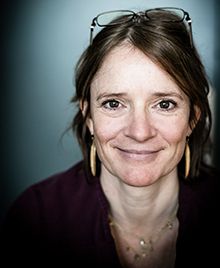New vice dean to focus efforts on external funding
Photographer: Claus Bjørn Larsen
 What will be your primary focus as new vice dean of research at CBS?
What will be your primary focus as new vice dean of research at CBS?
My primary focus will be on external research funding. Better research applications may lead to more funding and thus the possibility of performing more research tasks - for the benefit of research and society at large. My task will involve close contact with private and public foundations and companies. We will be discussing their strategies and their implementation on an ongoing basis in order to strengthen our research position. At the moment, the research dimension is not always the primary focus of funding providers. Their main interest is often to contribute to solving societal problems. My task is to show that being successful in solving societal problems requires in-depth and research-based knowledge. To me, high research quality and great relevance to practice are not contradictory, be it in companies, organisations or society at large.
How do you plan to go about this specifically?
My first task will be to map the external funding area at CBS. A significant goal is to strengthen internal review processes for applications across CBS. Externally, I will map our current contact with foundations nationally and under the auspices of the EU. It is especially important to engage in dialogue with the foundations and companies from which we have received funding throughout the years, while attempting to establish a dialogue with new players. At the same time, it is important to find out how the very different funding providers perceive quality and, if necessary, develop this perception. For instance, it is essential that we communicate why research takes time - in fact more time than you might find reasonable at first sight.
You have been a member of the Danish Social Science Research Council (FSE) at the Independent Research Fund Denmark for four years. What have you learned from sitting on the other side of the table?
My most valuable experience is how important it is to disseminate the actual research idea. I have been assessing hundreds of applications with the other 11 FSE members who represent the social sciences. Having a good idea and a clear and strong research design are so essential. It is crucial that the application makes sense to a wider audience than just researchers in your own area. Usually, I tell sociologists to have economists check their applications - and vice versa. This will give them an idea of their own limitations. Professional groups do not think alike, and if the project is too exclusive, it often will not make sense to a foundation board.
How can foundations and companies use you?
We are currently working on a suitable communication process. However, I hope that I, together with the researchers of CBS, can help pinpoint new and important research areas to foundations and companies - areas they may not have thought of to begin with.
What are the strengths of CBS’ research?
Compared to other business universities, the strength of CBS is our broad perspective on the business community as well as private and public organisations. This is in line with Danish tradition; that education involves more than just solving technical, limited problems. An institution with a larger palette of disciplines will have another way of solving problems than a more traditional business school. Firmly rooted in different disciplines, we may be better at formulating research questions that break with the general perception of a research field. An example of this is our Business in Society platforms, where we group researchers across disciplines.
How does external research funding impact our more than 20,000 students?
It is important for me to say that external funding is two-fold. In addition to the fact that external funding makes it possible to solve more research tasks within our goals and strategy, increased funding will boost the quality of our programmes and subsequently the graduates we offer to society. Better researchers equal better students. For instance, when a researcher receives a grant to study financial crises, it rubs off on their teaching activities because the researcher will bring the most recent literature and new ideas and analyses into their classroom. This is one of the advantages of hiring a university to perform a research task.
For more information, please contact:
Nanna Mik-Meyer, Vice Dean of Research and Professor with special responsibilities